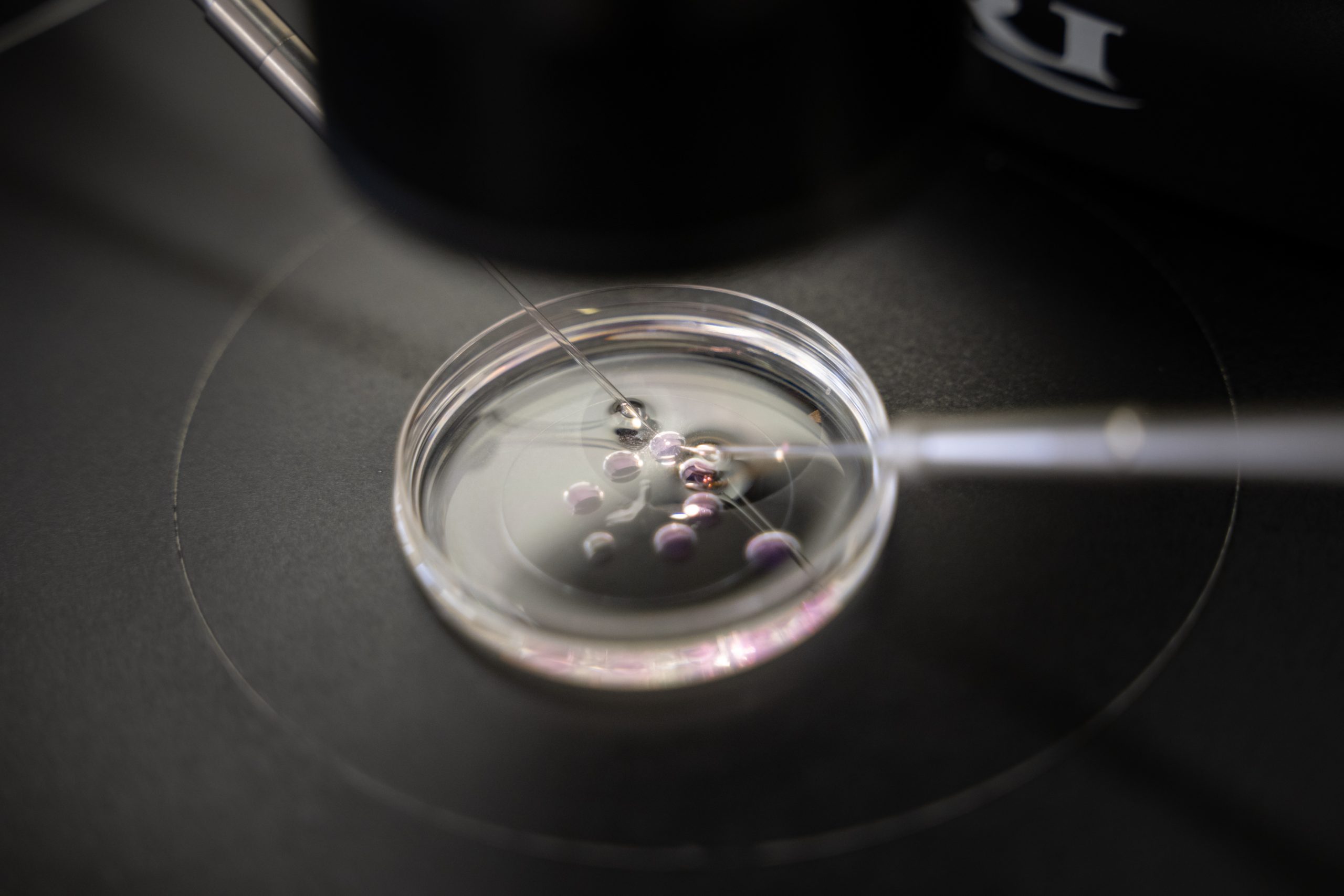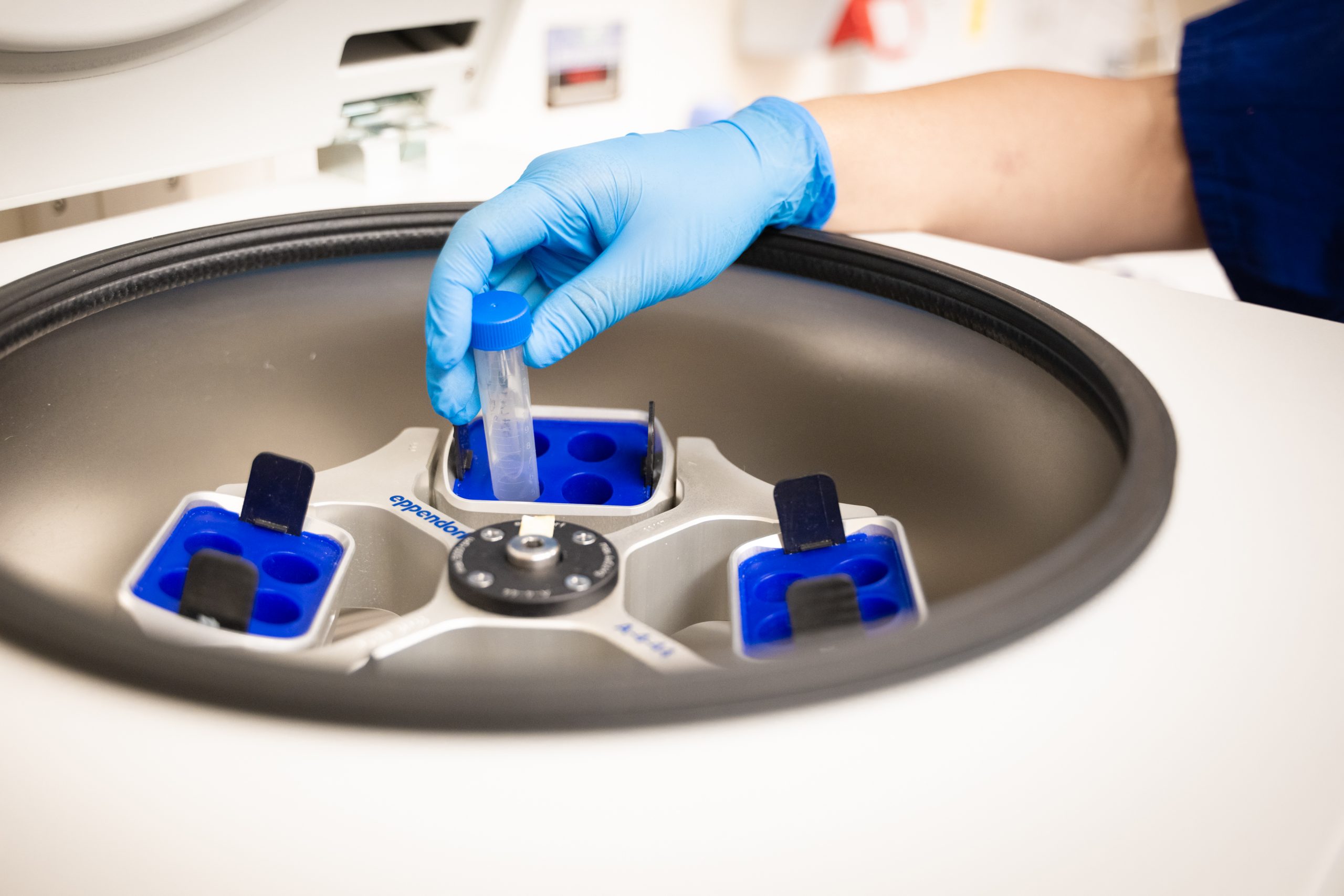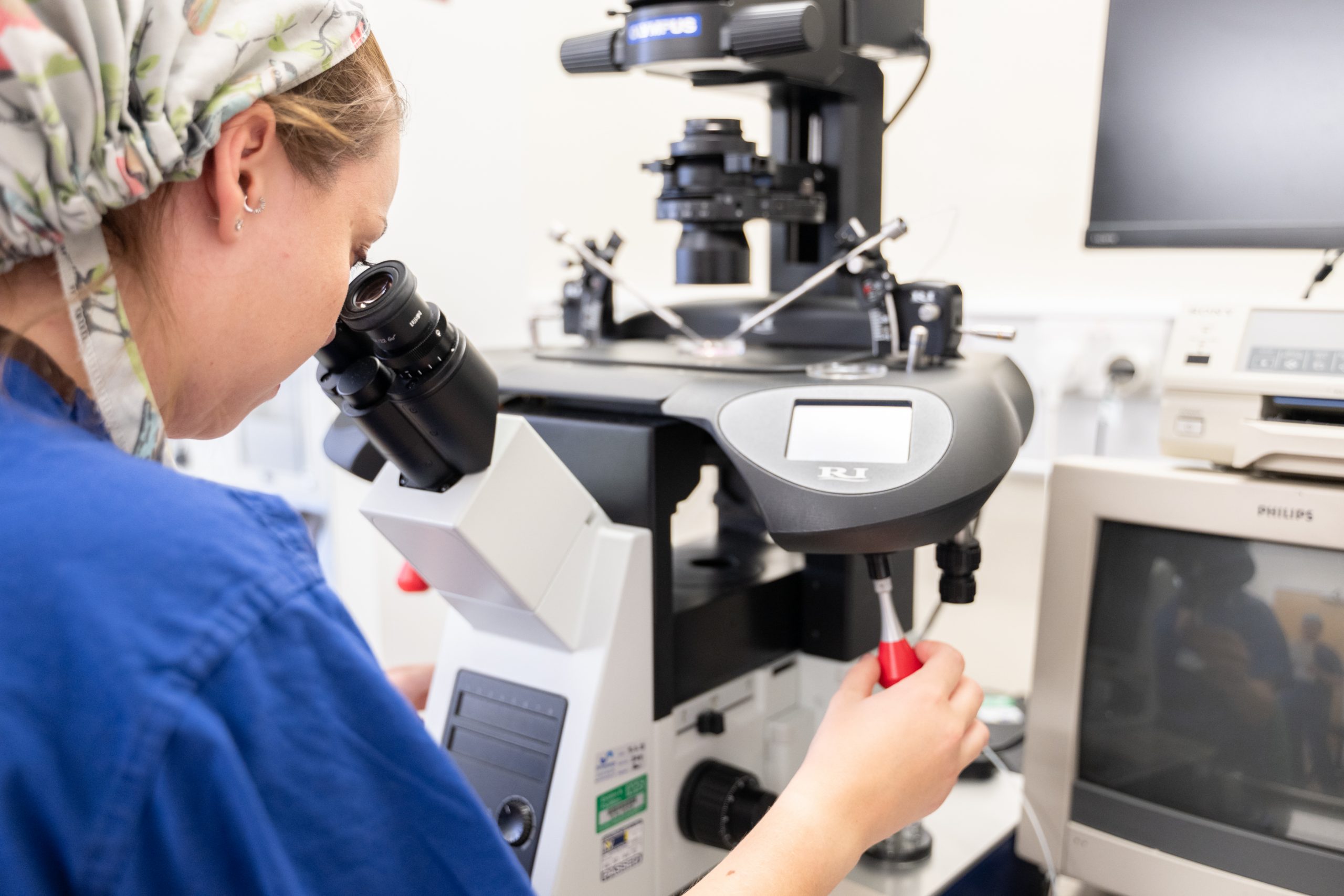What fertility tests are available?

At Leicester Fertility Centre we offer fertility tests for both women and men. This can help to inform about your current fertility status and also help to identify potential reason/s for having difficulty in conceiving.
If you wish to seek further help, you can book a consultation and have a plan that suits your individual needs.
Ovarian Reserve
Women are born with eggs which decrease in number as women grow older. Ovarian reserve is a term used to measure the egg / follicle capacity of the ovaries. This can be measured by a blood test of Anti-Mullerian Hormone. This test can be done anytime of the menstrual cycle and gives information on the potential ovarian reserve. It does not measure the exact number of eggs left in the ovaries or the quality of eggs. The test is useful in determining the treatment options and dose of medications for IVF.

Tubal Patency

For normal conception, the egg and sperm fertilise in the fallopian tube and therefore fallopian tube testing can be useful. Tubal patency tests assess the patency of the fallopian tubes (whether they are open or not). We can test tubal patency by doing an ultrasound scan guided gel test called as HyCoSY or by X-ray test called as HSG and sometimes during a laparoscopy (key hole surgery) called as they dye test.
Ultrasound
An ultrasound scan allows us to get a detailed image of your pelvis to assess the uterus, ovaries and any pathology which might affect fertility. Most often it is an internal scan called as transvaginal scan and in those who cannot tolerate it, a tummy scan called as transabdominal scan is performed. The findings of the scan help in deciding the best fertility treatment options for you.

Semen Analysis

Semen analysis allows us to assess the fertility of a man through his sperm and semen by checking to see the number of sperm produced (sperm count). It also highlights how well the sperm is able to move (sperm motility) and the shape and structure of the sperm, to see if it is strong enough and capable of fertilising an egg.
This process involves collecting a sperm sample and examining it to check for these factors. This helps evaluate how healthy the sperm is and whether there are any issues or any need for other fertility treatments.
Recurrent Pregnancy Loss and Recurrent Implantation Failure
Many people go through the heartache of miscarriage and losing a pregnancy, but RPL is the unfortunate occurrence of losing two or more pregnancies within the first 20 weeks of carrying the embryo. Likewise, RIF is when a person undergoes IVF or similar treatments but is unable to achieve pregnancy due to embryos being unable to be transferred into the uterus.
There are several tests that can aid in locating the causes for these occurrences. We can support you throughout the process and when the underlying causes are discovered, we can then try and aid in delivering you a baby.





